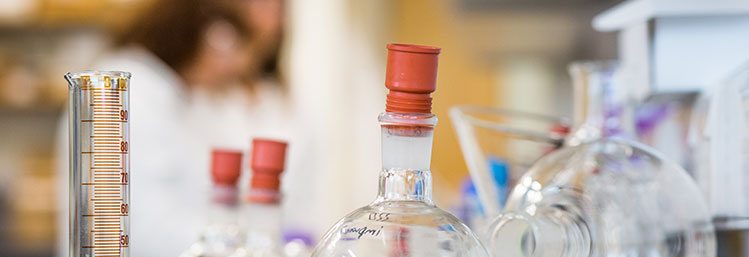
Cancer Drug Discovery
MSc
- Duration
- Start date
- Location
Suitable for applications.
Learning and assessment
A wide variety of teaching methods appropriate to the learning outcomes of the individual modules are employed throughout the programme, and are supported by the virtual learning environment provided by the University.
You will experience lectures from ICT research/teaching staff and visiting clinicians and industrial researchers, small group workshops, one-to-one tutorials and practical classes. You will also attend the Institute of Cancer Therapeutics Research Seminar programme.
Self-directed independent learning forms a significant component at MSc level; you will be supported to develop the attributes and skills needed for life-long learning and continued professional development. Directed private study will involve a variety of activities, which include directed reading of selected textbooks and specified source literature, use of the virtual learning environment (directed web-based materials), report writing, preparing presentations to deliver to peers, and other assignments.
Study support
Our comprehensive support services will help you to achieve your full potential – both academically and personally.
We provide all you need to make the very best of your time with us, and successfully progress through your studies and on into the world of graduate employment.
Our support services include:
- personal tutors
- Disability Service
- Counselling Service
- MyBradford student support centres
- Students’ Union
- Chaplaincy and faith advisers
- on-campus nursery
- Halls wardens
We have well-stocked libraries and excellent IT facilities across campus. These facilities are open 24 hours a day during term time, meaning you’ll always find a place to get things done on campus.
Our Academic Skills Advice Service will work with you to develop your academic, interpersonal and transferable skills, and our Career and Employability Services can help you develop your employability skills and help you find local part-time work during your studies.
Our support doesn’t end once you graduate – we maintain contact with tens of thousands of graduates, organising reunions, networking opportunities and developing overseas branches. You’ll be a lifelong member of the University of Bradford community – Team Bradford.
Research
The course provides an expert view of the use of recent knowledge and up-to-the minute specialised approaches to discover novel drugs to help fight disease and increase the quality of life for patients.
It benefits from the multidisciplinary team of researchers in the field of drug design, synthesis, screening, pharmacology and toxicology both at the University and through our extensive links with experts at other universities and industry.
Students on the course will also benefit from working in excellent research laboratories in a research focused environment.
